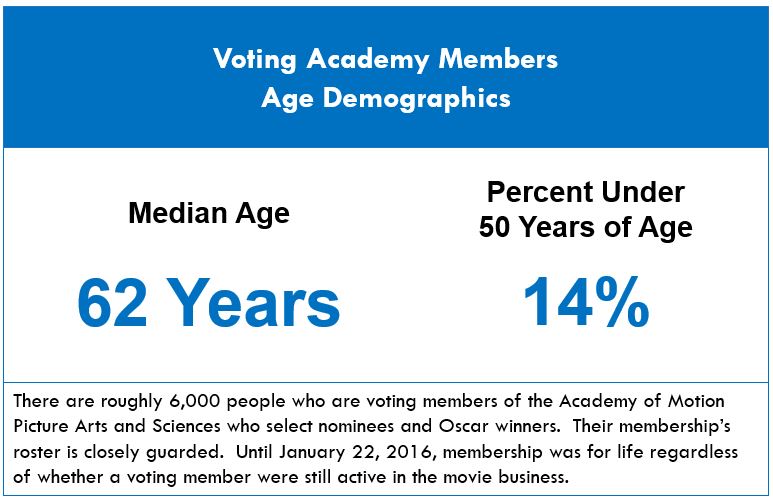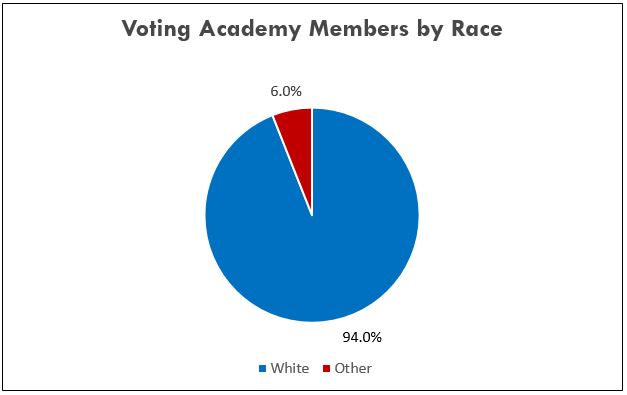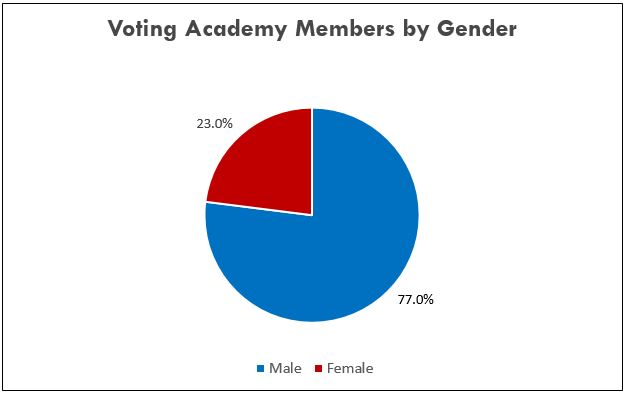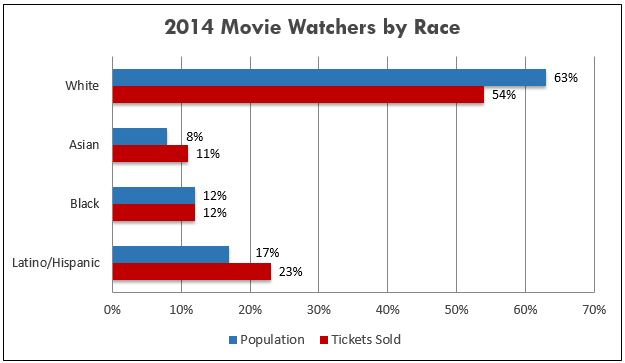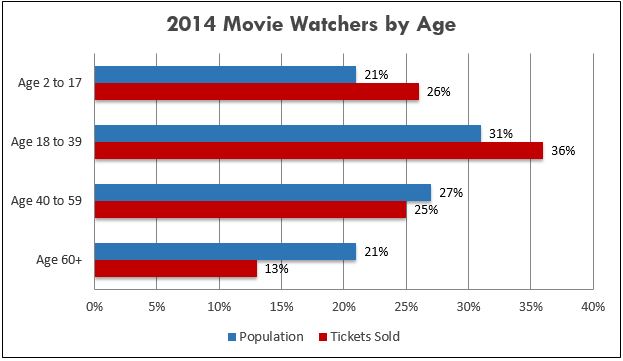And the Oscar Goes to…Old White Men

This year’s Oscars nominations have sparked a firestorm of controversy. Hollywood celebrities like actor Jada Pinkett Smith and filmmaker Spike Lee are calling for an Oscars boycott, and the hashtag #OscarsSoWhite is trending. At the same time, Chris Rock is being pressured to step down as this year’s host.
This is the second year in a row that not one single actor of color has been nominated. Unquestionably, this year’s nominees are talented. Yet, it is hard to believe they are the only ones deserving of such prestigious recognition.
George Clooney recently remarked that “we’re moving in the wrong direction…[with] nominations left off the table.” Clooney astutely pointed out that films like Beasts of No Nation, Creed, Straight Outta Compton, and Concussion did not receive nominations, and, in 2015, Ava DuVernay was not nominated for “Best Director” for the acclaimed film Selma.
The Academy of Motion Picture Arts and Sciences – led by Academy President Cheryl Boone Isaacs – has felt the heat to such an extent that its leadership responded swiftly on January 22nd with new rule changes. These new policies aim to add more people of color and women to its voting membership by 2020. This is a step in the right direction.
Frankly, the people who select nominees and Oscar winners are white, male, and nearing retirement age. They do not reflect the country’s population, those who go to the movies, nor the diversity and array of talent in Hollywood.
While the Academy’s new initiatives signal progress, the industry has a long way to go to reach parity. Hollywood is out of step with its consumers and the 21st Century.
Literally – An Old Boys Club
While the Academy keeps a tight lid on its membership, a 2012 study by the Los Angeles Times revealed how unrepresentative its voting members are.
The exclusive group of roughly 6,000 people who get to nominate and select Oscar winners are significantly older than most people working in Hollywood. Only 14% of the Academy’s voting members are under the age of 50. With voting privileges having been for life, its policies have fostered an aging membership. However, this will start changing with the new rules.
Moving forward, voting members will have to show every 10 years they have been active in the industry. Lifetime membership will only be given to those with three 10-year terms, or those who have won or been nominated for an Oscar. It is unclear if some current older members will be “grandfathered” in with lifetime voting privileges – both literally and figuratively.
However, age is not the only problem. The voting members are primarily white – arguably the reason for the present #OscarsSoWhite controversy. This predominately white demographic helps perpetuate outcomes where virtually all of the nominees each year are white. People tend to vote for people who look like them since they can more easily identify with the characters and storyline.
In 2016, it is really hard to justify why only 2% of voting members are black, less than 2% are Latino, and 94% are white.
Thankfully, the Academy will also address gender inequality with various new initiatives. There is much room for improvement with only 23% of voting members being female.
America’s Moviegoer – A Melting Pot
Not only does the Academy’s voting population fail to reflect America’s population, it is out of step with the demographics of those who spend money on and go to the movies. In recognizing that nearly half of those who go to the movies are black, Latino, and Asian, it is time for Hollywood to start making more films that speak to a broader and more inclusive group.
To produce films that increasingly have mass appeal, minorities need to start to see themselves on the big screen. Understanding your audience is not just about catering to the various ages of moviegoers. Tinseltown needs to incorporate the audience’s race into the stories it tells and who tells those stories.
Progress Needed at the Top
For real change to happen in Hollywood, progress needs to go further than what the Academy is planning – beyond who picks the Oscars to who funds and greenlights the projects. Industry decision makers are predominately white men. Companies like 20th Century Fox, Walt Disney Pictures, and Warner Brothers Pictures need to be held accountable and more inclusive. It is time to hire and create opportunities for more minorities and women.
This is more important than just who stars in a movie. Who gets the backing to make films and the race and gender of the studio executives selecting what gets made in the first place goes to the heart of the problem. This is about going beyond addressing the symptoms and instead creating a cure.
Not until the industry’s leadership changes will we have more films with diverse talent to even pick from for awards like the Oscars. When the people in the boardroom start looking like the rest of the country, then we will evolve from just having the black director tell the “black” story in Selma to also having a black director or producer make what should be a race neutral story like Superman.
Today’s Hollywood – Are We Back to Charlie Chan?
It is because of the current lack of vision and diversity that we continually witness poor decision making from Hollywood. Being less inclusive also helps fuel the industry’s occasional racial undertones and overt blunders.
A few classic examples – (1) Idris Elba being called “too street” to be the next James Bond, (2) studios funding offensive and arguably racist films like Adam Sandler’s The Ridiculous Six where many Native American cast members walked off the set because of the film’s offensive “jokes,” and (3) Hollywood picking white Englishman Charlie Hunnam to play a Mexican-American and white actor Emma Stone to play an Asian woman.
Have we really not progressed from the Charlie Chan movies of the 1930s? We are regressing.
Will the Revolution be Televised?
Until change permeates all levels of the industry, we can expect an endless barrage of films where audiences fail to see themselves on the screen – unable to relate to the characters and feeling excluded from what it means to be “American.”
Hopefully, Hollywood will wise up or else the hashtag may evolve from #OscarsSoWhite to #F-the-Oscars.
No one could have predicted that Jada Pinkett Smith’s YouTube video would be a catalyst for the Academy’s policy changes in record time. Given all the racial unrest over the past few years, there is a lot of angst simmering under the surface.
So it is not inconceivable for the Oscars boycott to become more significant. People could stop going to the movies and vote with their dollars. When money walks, Hollywood listens. At this point, it could be up to the industry to predict its future – evolving with the 21st Century or literally clinging to the “silver screen” of years past.
The Azara Group (TAG) is a consulting firm that promotes the development of leaders in an increasingly competitive and diverse marketplace – providing strategy consulting services and leadership training services to advance professional and life success. TAG leverages expertise in career strategy, diversity, negotiation skills, and business acumen to provide strategic advice and consulting services to help people and organizations get what they want, achieve their goals, and advance their business and career objectives. TAG also helps companies better attract, retain, and promote diverse talent, and develop robust diversity platforms and strategies to create a more inclusive workplace.
The Azara Group welcomes your direct comments and feedback. We do not post comments to our site at this time, but we value hearing from our readers. We invite you to share your thoughts with us. You can contact us directly at info@theazaragroup.com.
 The Azara Group
The Azara Group